Positive or negative: Revelstoke-based company Ovry aims to end pregnancy test stigma
Jackie Rhind is the founder of Ovry, a company striving to make the purchase of pregnancy & ovulation tests easier for people
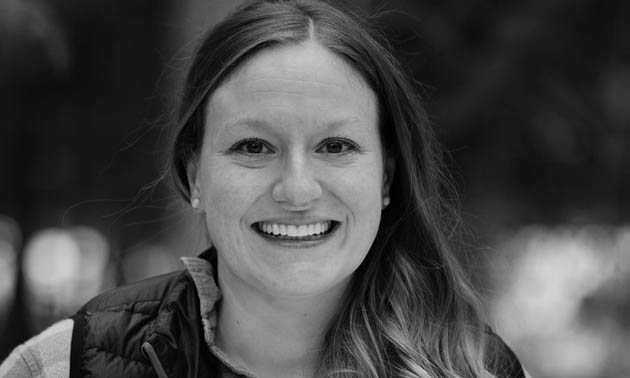
Jackie Rhind founded Ovry—a brand of pregnancy and ovulation tests—after experiencing the stress and stigma of purchasing such products firsthand. — Zoya Lynch photo
We’ve all seen the ads on TV for mainstream pregnancy tests: cue the anxious-looking couple, the camera panning in to get a close shot of the positive result on the test, another shot of the couple now happily beaming big “we’re pregnant!” grins and clutching each other with expectant joy. Yay! Everyone is happy.
For many people—men and women alike, the reality is not so rosy. Despite the commercials we are used to seeing, many pregnancy test consumers are hoping for a negative result and many feel stigma or shame when they buy a pregnancy test for any reason other than trying to conceive.
For Jackie Rhind, it was this unpleasant and stressful ordeal of buying pregnancy tests that spurred her to build a business around the experience. She is the founder and managing director of Revelstoke-based Ovry, a brand of high-quality pregnancy and ovulation tests.
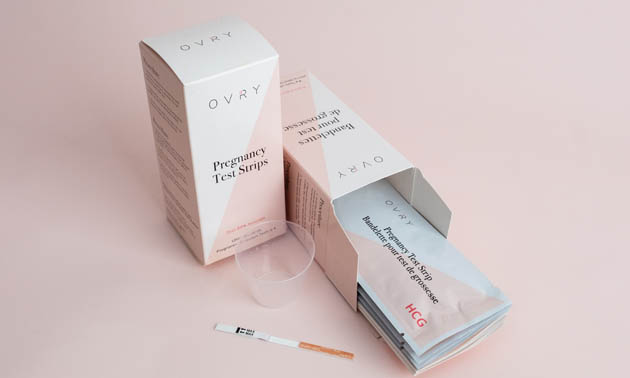
Ovry pregnancy test strips are much more affordable than comparable retail brands and contain several test strips per box. — Spencer Watson photo
“The experience of buying a pregnancy test is not pleasant. I know because I’ve bought a lot of them,” she said, “The anticipation of the result is enough to make the purchase unpleasant, but then you add in stigma, the chance of running into someone you know, offhand comments from the cashier, the cost of the test—the whole experience sucks. Store-bought tests are also incredibly wasteful.”
Ovry pregnancy and ovulation tests use 99 per cent less single-use plastic than similar store-bought brands and are manufactured in Canada. They are just as quick and accurate as retail brands while also being less wasteful, more affordable, more sustainable and more convenient. Each box of Ovry products contains several tests and can be conveniently ordered from home with free shipping over $20. Ovry products are shipped in discreet packaging.
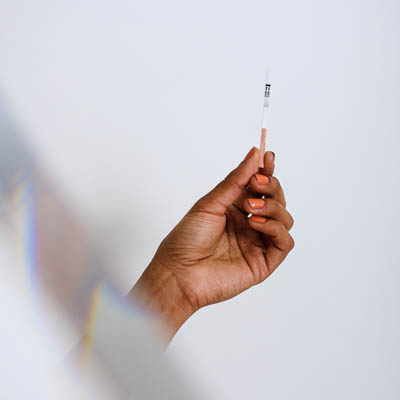
Just as quick and accurate as other brands, Ovry test strips are also manufactured in Canada. — Spencer Watson photo
“There are varied circumstances that lead people to need a pregnancy [or ovulation] test,” said Rhind, “people with irregular cycles who experience frequent anxiety around pregnancy, people who track their ovulation as an alternative to hormonal contraception and people who are tracking their adjustment to (or from) birth control.
“I wanted to provide people who experience frequent anxiety around pregnancy with a more convenient product that they could keep on-hand for peace of mind whenever they felt the urge to test.”
Before embarking on her Ovry business, Rhind was working in project management for a local contractor. As a Revelstoke City Council member, she's also a familiar face in the community.
What are the core values that you bring to your business? What’s important to you personally and as a business owner?
Like most feminists, I value equality in all aspects of life. This business is no exception. People with female reproductive systems have been bleeding monthly since the beginning of time and yet, only in recent years have we seen businesses emerge developing better products for menstruators (think: Knix, Blume, DivaCup). My hope is that Ovry will forge a similar path in the fertility space, and I don’t think that’s possible unless equality is foundational to our operation.
As a person and as a business owner, I think it’s also essential to speak out against the patriarchal constructs that still make people feel ashamed for buying products related to their reproductive health. In my opinion, it is unacceptable and frankly irresponsible for brands not to acknowledge this, speak out against it and help empower people through education.
As a Revelstoke City Council member, do you think your position gives you any skills that are also useful to your business?
That’s an interesting question. I’ve never really thought about it before, but there are a couple skills that I’ve developed serving on council that transfer over to the business. The first thing that comes to mind is practice making decisions. I feel like any political role forces you to become comfortable making decisions and managing the consequences. Being more decisive has helped me move things along quickly with the business and has given me many opportunities to learn from my mistakes.
What practical advice do you have for other aspiring women entrepreneurs?
Ditch perfectionism. Start somewhere and then iterate. Your first anything isn’t going to be your best (product, program, landing page, ad, etc.), but it’s much easier to make improvements once you have something to work with. Plus, the earlier you can get customer feedback on something, the less rework you’ll end up doing in the long run.
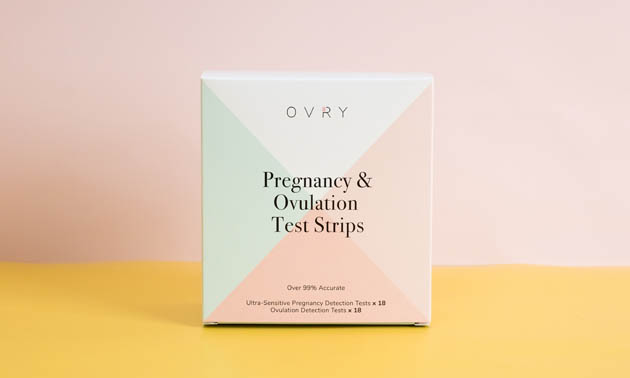
Ovry products are available in combination boxes which contain both pregnancy and ovulation test strips. — Spencer Watson photo


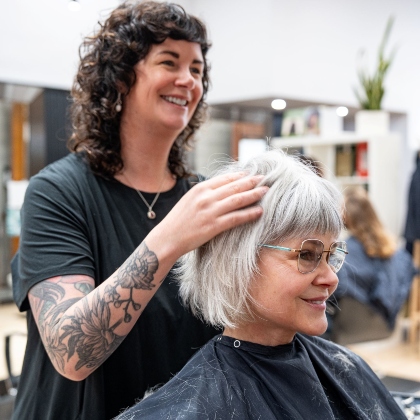



Comments